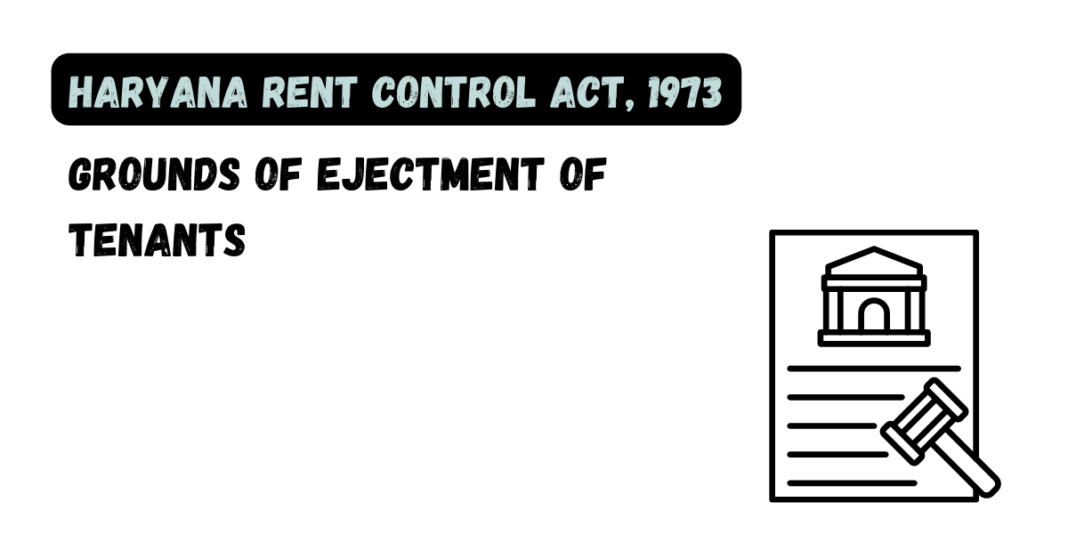Under the Haryana Rent Control Act, 1973, a landlord can evict a tenant on specific grounds, which are:
- Default in payment of rent: If the tenant fails to pay rent for a period of more than two months, the landlord can apply for eviction.
- Subletting without permission: If the tenant sublets the rented property without the permission of the landlord, the landlord can apply for eviction.
- Nuisance: If the tenant uses the rented property for any illegal or immoral purposes or causes a nuisance to the neighbors, the landlord can apply for eviction.
- Damage to property: If the tenant causes any damage to the rented property beyond normal wear and tear, the landlord can apply for eviction.
- Vacating the property: If the tenant vacates the rented property without giving proper notice to the landlord, the landlord can apply for eviction.
- Personal need of the landlord: If the landlord or any of his family members require the rented property for their personal use and occupation, the landlord can apply for eviction.
- Reconstruction or repairs: If the rented property requires reconstruction or repairs that cannot be carried out while the tenant is occupying the property, the landlord can apply for eviction.
It is important to remember that the tenant cannot be evicted by the landlord without first receiving a valid and reasonable eviction order from the Rent Controller or Rent Tribunal. Additionally, the tenant has the option to reject the eviction request and argue their case in front of the Rent Controller or the Rent Tribunal.





